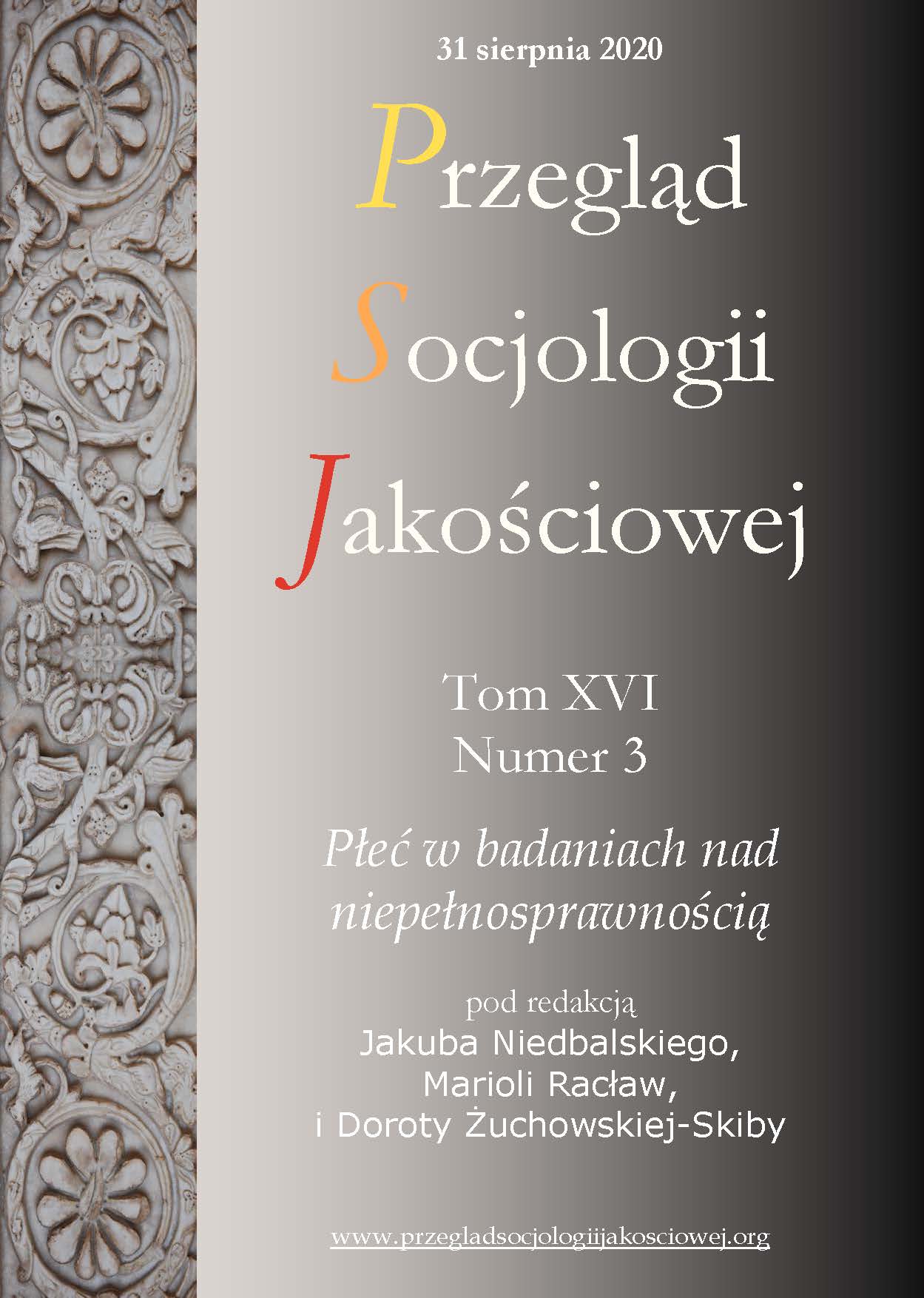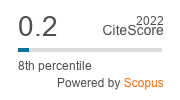Co i jak? Typologia analiz narracyjnych oparta na praktykach badawczych
DOI:
https://doi.org/10.18778/1733-8069.16.3.08Słowa kluczowe:
analiza narracyjna, CAQDAS, analiza treści, Text Mining, kodowanie słownikowe, modelowanie tematyczneAbstrakt
Istotą jakościowych praktyk badawczych jest wieloparadygmatyczność, która rodzi współistnienie różnych podejść metodologicznych w analizie i badaniu ludzkich doświadczeń w świecie życia codziennego. Różnorodność ta jest szczególnie widoczna w dziedzinie badań i analizy danych narracyjnych. Celem artykułu jest refleksja metodologiczna nad tworzeniem typologii analiz narracyjnych i zarazem propozycja nowego sposobu typologizacji podejść analitycznych, opartego na łączeniu lingwistyki korpusowej i przetwarzania języka naturalnego z procedurami CAQDAS, analizy treści i Text Mining. Typologia ta jest oparta na analizie narracyjnych praktyk badawczych odzwierciedlonych w języku anglojęzycznych artykułów opublikowanych w pięciu uznanych na świecie jakościowych czasopismach metodologicznych w latach 2002–2016. W artykule wykorzystuję metodę słownikową w procesie kodowania artykułów, hierarchiczne grupowanie i modelowanie tematyczne w celu odkrywania w tych publikacjach różnych typów analiz narracyjnych i badania relacji semantycznych między nimi. Jednocześnie konfrontuję heurystyczną typologię Riessmana z podejściem opartym na lingwistyce i eksploracji danych w celu rozwijania spójnego obrazu metodologii analizy narracyjnej we współczesnej dziedzinie badań jakościowych. Ostatecznie przedstawiam nowy model myślenia o analizie narracyjnej.
Pobrania
Bibliografia
Andrews, Molly et al. 2004. “Narrative research.” Pp. 98-113 in Qualitative Research Practice, edited by C. Seale et al. London: Sage Publications.
Google Scholar
DOI: https://doi.org/10.4135/9781848608191.d11
Berelson, Bernard. 1952. Content analysis in communication research. Glencoe: Free Press.
Google Scholar
Bernard, Russell H. and Gerry W. Ryan. 2010. “Content analysis.” Pp. 287-310 in Analyzing Qualitative Data: Systematic Approaches, edited by B. Russell and G. Ryan. Los Angeles: Sage Publications.
Google Scholar
Berry, Michael W. 2004. Survey of Text Mining: Clustering, Classification, and Retrieval. New York: Springer.
Google Scholar
Bong, Sharon A. 2002. “Debunking Myths in Qualitative Data Analysis.”Forum Qualitative Sozialforschung 3(2). Retrieved May 5, 2020 https://www.qualitative-research.net/index.php/fqs/article/view/849
Google Scholar
Bowker, Lynne and Jennifer Pearson. 2002. Working with Specialized Language: A Practical Guide to Using Corpora. London: Routledge.
Google Scholar
DOI: https://doi.org/10.4324/9780203469255
Bryda, Grzegorz. 2014a. “Caqdas, Data Mining i odkrywanie wiedzy w danych jakościowych.” Pp. 13-40 in Metody i techniki odkrywania wiedzy. Narzędzia CAQDAS w procesie analizy danych jakościowych, edited by J. Niedbalski. Lodz: Wydawnictwo Uniwersytetu Łódzkiego.
Google Scholar
DOI: https://doi.org/10.18778/7969-549-2.02
Bryda, Grzegorz. 2014b. “CAQDAS a badania jakościowe w praktyce.” Przegląd Socjologii Jakościowej 10(2):12-38.
Google Scholar
DOI: https://doi.org/10.18778/1733-8069.10.2.02
Bryda, Grzegorz. 2020. “From CAQDAS to Text Mining: The Domain Ontology as a Model of Knowledge Representation About Qualitative Research Practices.” Pp. 72-88 in Computer supported qualitative research: new trends on qualitative research, edited by P. Costa Antonio, P. Reis Luis, and A. Moreira. WCQR2019. Cham: Springer International Publishing.
Google Scholar
DOI: https://doi.org/10.1007/978-3-030-31787-4_6
Bryda, Grzegorz and Natalia Martini. 2016. “W stronę ontologii pola badań jakościowych.”Przegląd Socjologii Jakościowej 12(4):24-40.
Google Scholar
Bryda, Grzegorz and Krzysztof Tomanek. 2014. “Od Caqdas do Text Miningu. Nowe techniki w analizie danych jakościowych.” Pp. 191-218 in Metody i techniki odkrywania wiedzy. Narzędzia CAQDAS w procesie analizy danych jakościowych, edited by J. Niedbalski. Lodz: Wydawnictwo Uniwersytetu Łódzkiego.
Google Scholar
DOI: https://doi.org/10.18778/7969-549-2.10
Cheng, Winnie. 2012. Exploring Corpus Linguistics: Language in Action. London: Routledge.
Google Scholar
DOI: https://doi.org/10.4324/9780203802632
Clandinin, Jean D. and Jerry Rosiek. 2007. “Mapping a landscape of narrative inquiry: Borderland spaces and tensions.” Pp. 35-76 in Handbook of narrative inquiry: Mapping a methodology, edited by Jean D. Clandinin. Thousand Oaks: Sage Publishing.
Google Scholar
DOI: https://doi.org/10.4135/9781452226552.n2
Collins, Kathleen M.T., Anthony J. Onwuegbuzie and Jiao G. Qun. 2007. “A mixed methods investigation of mixed methods sampling designs in social and health science research.” Journal of Mixed Methods Research 1(3):267-294.
Google Scholar
DOI: https://doi.org/10.1177/1558689807299526
Cortazzi, Martin. 1993. Narrative Analysis. London: Falmer Press.
Google Scholar
Cortazzi, Martin. 2001. “Narrative Analysis in Ethnography.” Pp. 384-394 in Handbook of Ethnography, edited by P. Atkinson et al. London: Sage Publications.
Google Scholar
DOI: https://doi.org/10.4135/9781848608337.n26
Coulter, Cathy A. and Mary Lee Smith. 2009. “The Construction Zone: Literary Elements in Narrative Research. ”Educational Researcher 38(8):577-590.
Google Scholar
DOI: https://doi.org/10.3102/0013189X09353787
Creswell, John W. 1998. Qualitative inquiry and research design: Choosing among five traditions. Thousand Oaks: Sage Publications.
Google Scholar
Creswell, John W. 2015. A Concise Introduction to Mixed Methods Research. London: SAGE.
Google Scholar
Czarniawska-Joerges, Barbara. 2004. Narratives in social science research. Los Angeles: Sage Publications.
Google Scholar
DOI: https://doi.org/10.4135/9781849209502
De Fina, Anna and Alexandra Georgakopoulou. 2015. The Handbook of Narrative Analysis. London: Wiley-Blackwell.
Google Scholar
DOI: https://doi.org/10.1002/9781118458204
Denzin, Norman K. and Yvonna S. Lincoln. 1994. Handbook of Qualitative Research. Thousand Oaks: Sage Publications.
Google Scholar
Denzin, Norman K. and Yvonna S. Lincoln. 2011. The SAGE Handbook of Qualitative Research. Fourth Edition. Thousand Oaks: Sage Publications.
Google Scholar
Dey, Ian. 1993. Qualitative data analysis: A user-friendly guide for social scientists. London, New York: Routledge.
Google Scholar
Elliott, Jane. 2009. Using narrative in social science research: Qualitative and quantitative approaches. London: Sage Publications.
Google Scholar
Feldman, Ronen and James Sanger. 2007. The Text Mining Handbook: Advanced Approaches in Analyzing Unstructured Data. Cambridge, MA: Cambridge University Press.
Google Scholar
DOI: https://doi.org/10.1017/CBO9780511546914
Fielding, Nigel. 2012. “The Diverse Worlds and Research Practices of Qualitative Software.” Forum Qualitative Sozialforschung 13(2). Retrieved February 5, 2020 https://www.qualitative-research.net/index.php/fqs/article/view/1845
Google Scholar
Fielding, Nigel G. and Raymond M. Lee. 1998. Computer Analysis and Qualitative Research. London: SAGE.
Google Scholar
Flick, Uwe. 2014. The SAGE Handbook of Qualitative Data Analysis. Los Angeles: Sage Publications.
Google Scholar
Flick, Uwe. 2018. The SAGE Handbook of Qualitative Data Collection. Los Angeles: Sage Publications.
Google Scholar
DOI: https://doi.org/10.4135/9781526416070
Gee, James Paul. 1991. “A linguistic approach to narrative.” Journal of Narrative and Life History 1(1):15-39.
Google Scholar
DOI: https://doi.org/10.1075/jnlh.1.1.03ali
Goffman, Erving. 1975. The presentation of self in everyday life. Harmondsworth: Penguin Books.
Google Scholar
Grbich, Carol. 2013. Qualitative data analysis: An introduction. Los Angeles: Sage Publications.
Google Scholar
Herman, Luc and Bart Vervaeck. 2005. Handbook of Narrative Analysis. Frontiers of narrative. Lincoln, NE: University of Nebraska Press.
Google Scholar
Ho, Yu Chong, Angel Jannasch-Pennell, and Samuel DiGangi. 2011. “Compatibility Between Text Mining and Qualitative Research in the Perspectives of Grounded Theory, Content Analysis, and Reliability.” The Qualitative Report 16(3):730-744.
Google Scholar
Holstein, James A. and Jaber F. Gubrium. 2012. Varieties of Narrative Analysis. Los Angeles: Sage Publications.
Google Scholar
DOI: https://doi.org/10.4135/9781506335117
Hopkins, Daniel J. and Gary King. 2010. “A method of automated nonparametric content analysis for social science.”American Journal of Political Science 54(1):229-247.
Google Scholar
DOI: https://doi.org/10.1111/j.1540-5907.2009.00428.x
Ignatow, Gabe, and Rada Mihalcea. 2017. Text Mining: A Guidebook for the Social Sciences. London: Sage publication.
Google Scholar
DOI: https://doi.org/10.4135/9781483399782
Kelle, Udo. 1995. Computer-aided qualitative data analysis: Theory, methods and practice. London: Sage Publications.
Google Scholar
Kohler Riessman, Catherine. 1993. Narrative Analysis. Newbury Park: Sage Publications.
Google Scholar
Kohler Riessman, Catherine. 2008. Narrative Methods for the Human Sciences. Los Angeles: Sage Publications.
Google Scholar
Kreiswirth, Martin. 2005. “Narrative Turn in the Humanities.” Pp 377-382 in Routledge Encyclopedia of Narrative Theory, edited by D. Herman, J. Manfred, and R. Marie-Laure. London: Routledge.
Google Scholar
Krippendorf, Karl. 2004. Content analysis: An introduction to its methodology. Thousand Oaks: Sage Publications.
Google Scholar
Labov, William. 1972. Language in the Inner City. Philadelphia: University of Pennsylvania Press.
Google Scholar
Labov, William. 1991. Sociolinguistic patterns. Philadelphia: University of Pennsylvania Press.
Google Scholar
Labov, William and Joshua Waletzky. 1967. “Narrative Analysis.” Pp. 12-44 in Essays on the Verbal and Visual Arts, edited by J. Helm. Seattle: University of Washington Press.
Google Scholar
Leetaru, Kalev. 2012. Data Mining Methods for the Content Analyst: An Introduction to the Computational Analysis of Content. Park Drive: Taylor and Francis.
Google Scholar
DOI: https://doi.org/10.4324/9780203149386
Lewins, Ann and Christina Silver. 2007. Using Software in Qualitative Research: A Step-by-Step Guide. Thousand Oakes: Sage Publications.
Google Scholar
DOI: https://doi.org/10.4135/9780857025012
Mayring, Philipp. 2000. “Qualitative Content Analysis.” Forum Qualitative Sozialforschung 1(2). Retrieved March 5, 2020 https://www.qualitative-research.net/index.php/fqs/article/view/1089/2385
Google Scholar
McEnery, Tony and Andrew Hardie. 2011. Corpus Linguistics: Method, Theory and Practice. Cambridge, MA: Cambridge University Press.
Google Scholar
DOI: https://doi.org/10.1017/CBO9780511981395
McEnery, Tony and Andrew Wilson. 2001. Corpus Linguistics: An Introduction. Edinburgh: Edinburgh University Press.
Google Scholar
Mehdi, Raza Ali. 2016. The Routledge Encyclopedia of Research Methods in Applied Linguistics. Basingstoke: Taylor & Francis Ltd.
Google Scholar
Mishler, Elliot G. 1995. “Models of Narrative Analysis: A Typology.” Journal of Narrative and Life History 5(2):87-123.
Google Scholar
DOI: https://doi.org/10.1075/jnlh.5.2.01mod
Munn, Katherine and Barry Smith. 2008. Applied Ontology: An Introduction. Piscataway: Transaction Books Rutgers University.
Google Scholar
DOI: https://doi.org/10.1515/9783110324860
Phoenix, Cassandra, Brett Smith, and Andrew C. Sparkes. 2010. “Narrative analysis in aging studies: A typology for consideration.” Journal of Aging Studies 24(1):1-11.
Google Scholar
DOI: https://doi.org/10.1016/j.jaging.2008.06.003
Polanyi, Livia. 1985. Telling the American story: A structural and cultural analysis of conversational storytelling. Norwood, NJ: Ablex Publishers.
Google Scholar
Polkinghorne, Donald E. 1988. Narrative knowing and the human sciences. New York: State University of New York.
Google Scholar
Schreier, Margit. 2012. Qualitative Content Analysis in Practice. London: Sage Publications.
Google Scholar
Tashakkori, Abbas and Charles Teddlie. 1998. Mixed methodology: Combining qualitative and quantitative approaches. Thousand Oaks: Sage Publications.
Google Scholar
Tomanek, Krzysztof and Grzegorz Bryda. 2014. “Odkrywanie wiedzy w wypowiedziach tekstowych. Metoda budowy słownika klasyfikacyjnego.” Pp. 219-248 in Metody i techniki odkrywania wiedzy. Narzędzia CAQDAS w procesie analizy danych jakościowych, edited by J. Niedbalski. Lodz: Wydawnictwo Uniwersytetu Łódzkiego.
Google Scholar
DOI: https://doi.org/10.18778/7969-549-2.11
Wiedemann, Gregor. 2013. “Opening up to Big Data: Computer-Assisted Analysis of Textual Data in Social Sciences.” Forum Qualitative Sozialforschung 14(2). Retrieved January 12, 2020 https://www.qualitative-research.net/index.php/fqs/article/view/1949
Google Scholar
Wolfson, Nessa. 1976. “Speech Events and Natural Speech: Some Implications for Sociolinguistic Methodology.”Language in Society 5(2):189-209.
Google Scholar
DOI: https://doi.org/10.1017/S0047404500007028
Pobrania
Opublikowane
Jak cytować
Numer
Dział
Licencja

Utwór dostępny jest na licencji Creative Commons Uznanie autorstwa – Użycie niekomercyjne – Bez utworów zależnych 4.0 Międzynarodowe.














